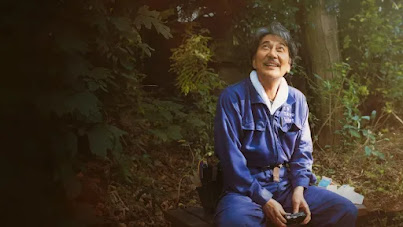Religion For Atheists (Alain de Botton): This might seem a rather strange additional book to help me in my Lenten reflections, but it was actually referred to in 2012 by Rowan Williams in one his Easter sermons during his time as Archbishop of Canterbury. I’d previously read a couple of de Botton’s books and he’s clearly a clever bloke and an excellent writer and this book didn’t disappoint. Don’t get me wrong – I certainly don’t consider myself to be an atheist (more of a struggle Christian-cum-occasional-agnostic!?). But, in fact, I found the book far more thought-provoking and helpful than a lot of previous books I’ve used during Lents over recent years. He starts by pointing out that secular society has been “unfairly impoverished by the loss of an array and practices associated with various religions”, such as: music, buildings, prayers, rituals, feasts, shrines, pilgrimages, communal meals and illuminated manuscripts of the faiths – primarily, for the purposes of the book, Christianity, Judaism and Buddhism. I found it quite a stimulating, thought-provoking read (even the Church Times apparently found it “surprisingly illuminating”!).
Antarctica (Claire Keegan): These days, I’m a glutton for Keegan’s short stories. Quiet, unfolding, hauntingly beautiful tales (first published in 1999) set in Ireland, USA or Britain. The subject matters vary and don’t always make comfortable reading - murders, betrayals, orphaned children, madness, suicides are just some of the themes in between… with offbeat characters, convincing dialogue, rituals, secrets, seasons and a strong sense of place. I’ve bought a number of her books over recent weeks/months and this (her first collection of short stories) and this is the last one from my bedside table. I’m going to miss my regular Keegan reading sessions… and think I might need to keep dipping into to some of them on a regular basis.
Before The Coffee Gets Cold (Toshikazu Kawaguchi): I’ve read a number of Japanese novels over the past couple of years and they’ve all had a certain ‘quirkiness’. This one was no exception. In a small back alley in Tokyo, there is a cafe which has been serving carefully brewed coffee for more than one hundred years. But this coffee shop offers its customers a unique experience: the chance to travel back in time. We meet four visitors, each of whom is hoping to make use of the cafe's time-travelling offer, in order to: confront the man who left them, receive a letter from their husband whose memory has been taken by early onset Alzheimer's, see their sister one last time, and meet the daughter they never got the chance to know. But the journey into the past does not come without risks: customers must sit in a particular seat, they cannot leave the cafe, and finally, they must return to the present before the coffee gets cold… It’s a rather beautiful, moving story and I was surprised by how much I enjoyed it.
Their Eyes Were Watching God (Zora Neale Hurston): This is our next Storysmith bookgroup book (first published in 1937). Zadie Smith has described it as “one of the very greatest American novels of the twentieth century”. My book’s cover summarises the story pretty well: “When, at 16, Janie is caught kissing shiftless Johnny Taylor, her grandmother swiftly marries her off to an old man with 60 acres. Janie endures two stifling marriages before she finally meets the man of her dreams – who offers not diamonds, but a packet of flowering seeds”. It’s an impressive book, written by a remarkable writer who was born in Alabama at the end of c19th. I found the African-American Vernacular English dialect hard to read (I’m glad I persevered!), but it’s an impressive, powerful, feminist book about a young black girl finding her way into womanhood in the rural, black South. I enjoyed it.
Somewhere Towards The End (Diana Athill): I really like Athill’s writing. I think this is the fifth book of hers I’ve read (first published in 2008, she died in 2019, aged 101) and this one is ‘what it says on the tin’, as it were – a reflection, written in old age, of things she’s experienced through her lifetime. I like her wisdom, fearlessness and her humour… the same sort of feeling I get from reading Jan Morris’s books, for example. I found it a wonderfully optimistic book – marvelling, as she does, at the fact that she only became a writer in her 70s – covering a wide range of topics, including: love; sex; never having been a mother; not giving up driving (despite realising she should); religion (she had no faith); the prospect of death; discovering new enjoyments/skills in old age; non-fiction books; climate change; laziness; oversights… and much more. Rather lovely.



